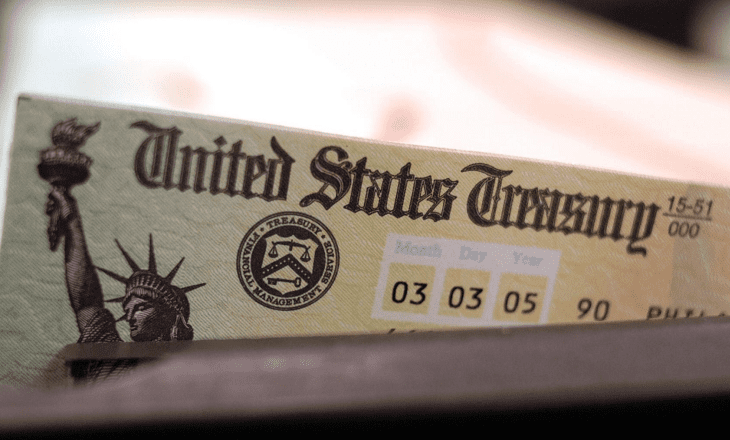All tsunamis, unfortunately, are a series of waves, not a single destructive wave that wreaks havoc and then quietly subsides. The same might be said metaphorically about the recent establishment attack over the past two weeks against Facebook and its Project Libra. A second wave is due, and it appears that Steven Mnuchin, the U.S. Treasury Secretary, has taken it upon himself to take to the national airways and heap more abuse in the direction of cryptocurrencies, this time specifically Bitcoin.
In an interview with CNBC, Mnuchin was quite candid in his remarks, which were in response to set ups from Joe Kernan, a recent convert to the crypto asset movement. When Kernan half jokingly suggested that Mnuchin might be talking about Fintech innovations for years, he blurted out:
I won’t be talking about Bitcoin in 10 years, I can assure you that. I would bet in even five or six years, I’m no longer talking about Bitcoin as Treasury Secretary. I’ll have other priorities. I can assure you I will personally not be loaded up on Bitcoin.
What is odd about such recent outright broadsides by the Trump administration and its figureheads, Mnuchin being one, is that for over two years there has been no interest whatsoever in cryptocurrencies, much less blockchain technology. Suddenly, President Trump is attacking Facebook and Libra in a tweet storm, while his henchman, Steven Mnuchin, is branding cryptos as a “national security issue”.
With regards to Trump, the source of his rage is more than likely Facebook, a firm he has scorned in the past. As we recently reported:
Since Trump had never spoken out before about his disdain for all things crypto, the question was why now? What suddenly drove this man over the edge, so to speak? He has never been a fan of Facebook. He has ranted about the social media’s proclivity of blocking right-wing figureheads and their hate-speak, a practice that other social media platforms have also adopted.
As for Mnuchin, however, he has been involved as a G20 Finance Minister and “has pressured the Financial Action Task Force and the G20 to get tough”. He is convinced that Bitcoin and others are nothing more than a playground for criminals and their illicit activities:
We will not allow cryptocurrency to become the equivalent of secret numbered accounts [and] we will allow for proper use, but we will not tolerate the continued use for illicit activities.
Mnuchin has also been very outspoken about Bitcoin’s supposed propensity for enabling money laundering, claiming that the U.S. has “the strongest Anti-Money Laundering system in the world. Bitcoin, on the other hand, is vulnerable to money laundering”. His answer is to come down hard with strict regulations:
We’re looking at all of the crypto assets… We’re going to make sure we have a unified approach and my guess is that there are going to be more regulations that come out from all these agencies.
Industry pundits believe that Mnuchin needs to updake his take on cryptos:
Despite evidence suggesting that by far the dominant use case of Bitcoin is speculation and not money laundering, Mnuchin still holds on to the dated view that the breakthrough technology is merely useful for evading law enforcement. The US Treasury Secretary fails to see the bigger picture in terms of technological advancement. Almost every great innovation in history first finds criminal use cases.
A case in point was last July 18th, when Mnuchin erroneously asserted that fiat currencies were not vehicles for money laundering, but “there are billions of dollars of transactions going on in bitcoin and other cryptocurrencies for illicit purposes.” Many industry experts were incredulous, citing that the good secretary might be behind the times. Tom Robinson, CEO of research firm Elliptic, which specializes in crypto forensics and assists law enforcement authorities with their investigations, has recently stated that:
Less than 0.5 percent of bitcoin transactions are used for illicit purchases.
For the moment, Steven Mnuchin does represent established interests, the “status quo”, so to speak. He is a Yale graduate, was once the Chief Information Officer of Goldman Sachs during his 17 years with that firm, and has managed and founded a number of hedge funds from 2002 forward, before assuming his cabinet post with Trump. The “system” has rewarded his efforts handsomely. His net worth is estimated to be in ecess of $300 million. With such success within the system, why would he ever support a disruptive technology?
The war of words, much of it misinformed, will continue, but so will efforts of the crypto industry to work together with the Financial Action Task Force (FATF) to implement its recommendations for cryptos, which were approved at the last G20 meeting in June. Crypto exchanges in the U.S. already have money transfer licenses from the Financial Crimes Enforcement Network (FinCEN) and comply with their regulations. If Mnuchin would only check around a bit, he would find that regulators and crypto executives are already cooperating to build what he professes he wants.
